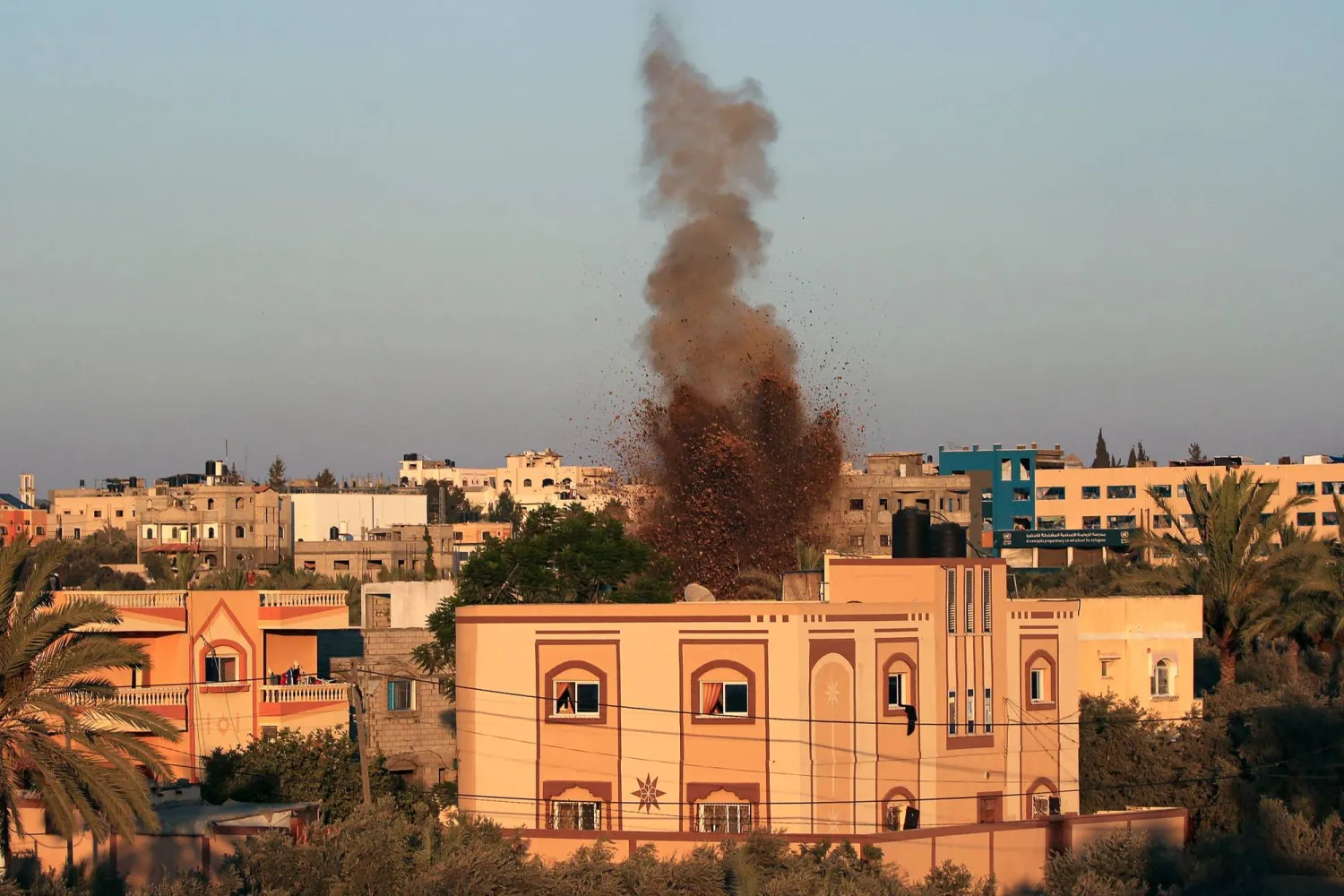An Israeli airstrike in the Gaza Strip killed on Saturday at least 18 people, all from the same family.
The airstrike hit a house and adjacent warehouse sheltering displaced people at the entrance to Zawaida town, according to the Al-Aqsa Martyrs Hospital in Deir al-Balah, where casualties were taken. An Associated Press reporter there counted the dead.
Among those killed was Sami Jawad al-Ejlah, a wholesaler who coordinated with the Israeli military to bring meat and fish to Gaza. The dead also included his two wives, 11 of their children ages 2 to 22, the children’s grandmother and three other relatives, according to a list provided by the hospital.
“He was a peaceful man,” said Abu Ahmed, a neighbor. More than 40 civilians were sheltering in the house and warehouse at the time, he said.
The Israeli military, which rarely comments on individual strikes, said it struck “terrorist infrastructure” in central Gaza where rockets had been fired toward Israel in recent weeks. It said it was continuing attacks on militants in central Gaza.
Another mass evacuation was ordered for parts of central Gaza. In a post on X, Israeli military spokesperson Avichay Adraee said Palestinians in areas in and around the urban Maghazi refugee camp should leave. He said Israeli forces will operate in them in response to Palestinian rocket fire.
Gaza ceasefire talks in Doha paused on Friday with negotiators to meet again next week seeking an agreement to end fighting between Israel and Hamas and free remaining hostages.
Israel's military campaign has killed more than 40,000 Palestinians, according to Gaza health authorities.









